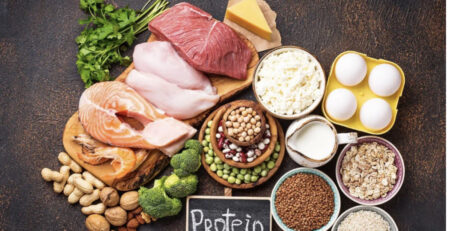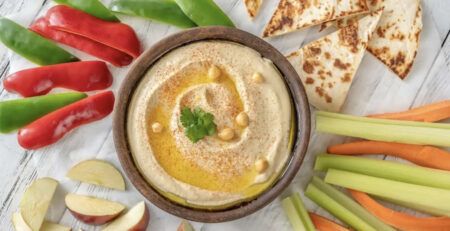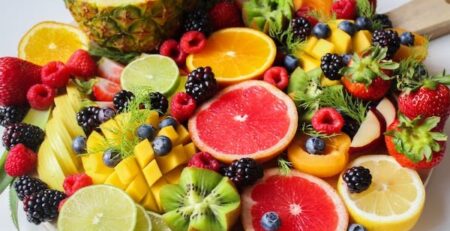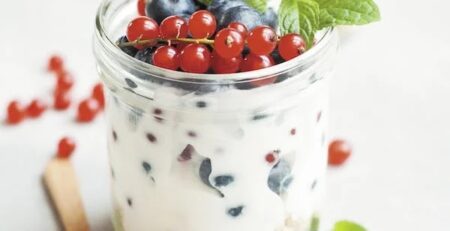Is Clean Eating Hurting Your Performance?
Eight years ago my college swim coach talked me into seeing a sports nutritionist, convinced that my inability to make it through a practice without “having a wheel fall off” (direct quote) had something to do with the way I was eating. I agreed to go–anything to help me perform better. Plus, although at the time I was on my way to an accounting degree, I was fascinated with nutrition.
Sadly, part of my interest in nutrition had to do with the diets I’d already dabbled with in high school, but the other part of me just wanted to “figure” out this healthy eating thing and how it could help me be a better athlete. At the time, I was doing my best to fuel with “clean foods”, but thought maybe this nutritionist would have some info I didn’t.
I can remember being pretty drowsy from my mid-morning nap on my way to the appointment (I was constantly napping – another clue I was under-fueled). I walked into the nutritionist’s office and we chatted briefly about my diet and practice schedule. She said she didn’t think I was taking in enough energy or protein and sent me on my way with a detailed fueling schedule along with different meal & snack ideas — some of those ideas contained foods that weren’t on my “clean eating” list.
It wasn’t what I was expecting, but hey, I was desperate for more energy and faster times, so I did what she said. I ate more and I stopped worrying so much about “clean” eating in favor of meeting my body’s nutrient needs. Guess what- it worked! So much so that the next semester I switched my major to nutrition & dietetics and went on to graduate with a masters in nutrition for physical performance, determined to help other athletes “fuel to perform.”
My story is not so different from lots of other athletes. Tons of people who compete in competitive and recreational sports are told that the quality of the “fuel” they put in their body determines their performance. This comes from the classic athlete, sports car metaphor — can’t tell you how many times I’ve heard it.
It goes like this: sports cars take quality fuel and so they perform well, like sports cars. Athletes too, should eat quality or “clean” fuel so they can perform like sports cars.
That metaphor is great and all, but there’s only one problem, we aren’t cars. Also, isn’t it better to put regular gas in the tank when you’re running on empty than it is to keep driving in search of “cleaner” fuel? The latter usually ends with running out of gas along the side of the interstate.
Clean eating is not a new phenomena. It’s been all the rage for at least 8 years, if not more. The definition is tricky and means something different to everyone. In general though, clean eating is eating minimally or completely un-processed whole foods. A lot of athletes (and people in general) take clean eating even further, refusing to eat anything that isn’t organic, GMO free, pasture-raised, etc. And some are under the impression that entire food groups are “unclean”. Meat, dairy, grains, beans and soy come to mind (to name a few).
At some point clean eating turns into orthorexia nervosa, a medical condition in which the sufferer systematically avoids specific foods in the belief that they are harmful. Although not formally recognized as an eating disorder, research on orthorexia nervosa is piling up.
What we know about this behavior is that it often starts as a genuine desire to eat healthy, but turns into an obsession with only eating “pure, clean” foods. If left untreated, the effects of orthorexia nervosa mimic those of anorexia and include osteoporosis, difficulty with cognition, lowered immune function, malnutrition, social isolation, emotional instability, infertility, kidney failure, low self-worth, anxiety and stress, and heart disease.
Not exactly the things athletes and health conscious folks are looking to add to their lives.
Even if your version of clean eating isn’t quite so extreme, but you focus on eating a 100% whole foods diet, it could still be harming your athletic performance. Processed foods, simple carbohydrates and highly palatable energy dense foods would not be considered clean and yet, all of them have a place and a purpose in a an athlete’s diet. Here are a few reasons why:
Simple carbohydrates are digested and released into the blood quickly. This is perfect when you’re in the middle of racing or competing and in need of quick energy. You can choose to consume a fibrous whole banana in the middle of a race, but the work of chewing and digesting it may divert more energy, take more time and deliver less fuel to your muscles than simple sugar from dried fruit, sport goos, energy blocks or a sport drink would. Aside from this, simple sugar consumption immediately following a workout helps create the necessary insulin response for muscle repletion and repair. This allows more fuel to reach your muscles in a timely manner, which if you have another workout within 4 hours, is paramount for recovery–bring on the chocolate milk please!
Eating only whole foods may fill you up before you’re able to meet your energy and macronutrient needs for recovery. Whole foods, especially in the form of veggies, whole grains, lean protein and fruit contain a lot of fiber and water which are known to increase the sensation of fullness. The problem with this is that you may be unintentionally under-fueling, and thus inhibiting recovery, eating away at lean muscle mass and putting yourself at risk of fatigue, injury and illness.
Allowing yourself to have highly palatable, energy dense foods when you are hungry for them (i.e. cookies, brownies, ice cream, fattier meat) will help you meet the energy demands of your body. And in the long run, being chronically under-fueled is far more harmful than eating any one food, clean or not. In other words, your car could be up there with the rest of them or stranded on the side of the road – your choice. Besides, highly palatable foods usually contain much needed fat, an essential nutrient that when low is associated with greater risk of sport injury.
Of course, as an athlete, knowing what type of food to eat and when throughout the day can be extremely helpful for recovery. If this is something you want to learn more about, I’d encourage you to download my free guide to fueling recovery
If you’re serious about fueling your body for better performance, but you need help renewing the way you eat and think about food, I’d love to work with you!
The desire to eat nutrient rich whole foods is not a bad thing! But ask yourself, is “clean” eating really helping your performance, or is it holding you back from being the best that you can be??
A couple weeks ago I wrote a post about intuitive eating and it’s potential to positively effect the health of female athletes and workout enthusiasts. Since then I’ve been deep diving into the topic of intuitive eating for athletes.
Unfortunately it feels like I’m deep diving straight into the abyss – I’m anticipating an attack from giant squids, 20,000 League’s under the sea style, anytime now. Because the truth is, while there is some research regarding the psychological effects of intuitive eating among current and former female athletes, there’s pretty much ZILCH on how normal/intuitive eating effects sport performance, rates of injury, etc. If you know of some such research CONTACT ME. And if you are in a place to perform a research study, please CONTACT ME!
But, regardless, at this point what I’m about to write is mainly extrapolation from what I do know to be true based of research but also a little conjecture based off of my own experiences and observations as an athlete. Mainly it’s a compilation of thoughts from my crazy, curious brain. But hopefully it’ll help raise a few thoughts of your own.
Let’s start with some observations:
Athletes are told that in order to perform at their best they need to really focus on good nutrition: pre, during and post workout fueling, along with an overall balanced, health promoting diet.
Many athletes are encouraged to lose weight in the name of improving performance: i.e. runners, swimmers, divers, high jumpers, dancers, gymnasts, wrestlers. Weight loss goals permeate nutrition discussions in each of these sports
Athletes, both female and male, are at a higher risk for eating disorders and disordered eating
Characteristically, elite athletes are high performing, perfectionistic, rigid, earn what you work for types
Taken together, these form a perfect storm for athletes to be what we term ‘controlled eaters’. Controlled eaters are individuals who eat based off of a set of rules, utilizing willpower to decide what, when, and how much to eat. This includes athletes who count calories, follow a strict meal plan, eat only certain foods that they deem ‘clean’ and those that restrict foods in the name of weight loss or ‘performance’.
A recent research article published in the Eating Disorders: The Journal of Treatment and Prevention surveyed former collegiate athletes, asking whether their eating habits had changed since college, and if so, how. Participants reported increased freedom and decreased anxiety with eating since stopping their sport. They reported eating based off of their hunger and satiety cues as opposed to the rigid format with which they ate as athletes. Beyond this, they reported decreased binging and feelings of being out of control with eating (1).
In essence, the female athletes in this study, who by the way were all former gymnasts or swimmers/divers (both weight conscious sports), were experiencing binges and ‘out of control’ eating while they were collegiate athletes. Also during their time as collegiate athletes, they were eating in a controlled, rigid manner that resulted in higher rates of anxiety. This doesn’t really come as a surprise. It’s well known that rigid eating and diets often lead to disordered eating, binges, and feelings of anxiety and being out of control around food.
This information alone should be enough motivation to stop the controlled eating amongst athletes, but as a former collegiate swimmer, I know that it’s not. We need to be able to say that normal/intuitive eating results in better sport performance than controlled eating. Because sadly, for many of these kids long-term health isn’t really on their mind, but performance definitely is.
Until we have research to definitively support that intuitive eating athletes perform better, have decreased rates of injury, recover better, etc. than controlled eaters we have stories, case studies and hypotheses. But just because these things aren’t double blind randomized control trial (RCT) studies, doesn’t mean we shouldn’t take them into consideration. So, here are some things to think about in the mean time:
We tend to believe that a lower body weight will translate to better performance in certain sports (running, high jump, swimming to name a few). But what are we basing these beliefs on?
Let’s take high jump for example. My husband was an All-American high jumper, so I’ve watched my fair share of ‘Fosbury flops’ over the years. It is true that many of the elite college high jumpers were tall and skinny. Because people with this body type tended to perform well at high jump, the athletes who weren’t already naturally tall and skinny did everything to get there and the ones who had this body type tended to did all they could to prevent weight gain. In essence, there was a lot of restricting calories among high jumpers in an effort to emulate the best athletes in the sport. But this thinking has a major flaw. Correlation between lower bodyweight and performance is not the same as a lower bodyweight causing good performance.
In fact, I remember one athlete who jumped around the same time as my husband. He was a fair bit bigger than the ‘typical’ high jumper. And by bigger I mean he met normal weight standards for a man his height while most high jumpers toed the line between underweight and normal weight. But you know what, that kid’s name was Erik Kynard and he ended up winning silver in the high jump at the 2012 Olympic Games in London.
Although one example does not make a case, there are countless similar examples out there of athletes who don’t follow the expected strict weight and diet rules or their sport and yet succeed. I mean look at Rich Frohning, four time CrossFit Games champion. While most of the sport of CrossFit restricts foods that don’t fit into the ‘paleo’ framework, Rich Frohning is famous for eating what he wants (sounds like an intuitive eater to me). What if we didn’t force our bodies or our athletes ‘bodies to be something they weren’t designed to be by means of restricting calories and overworking? What if instead we fueled them well, eating when hungry stopping when satisfied, giving permission to enjoy food and discover foods that make us feel good? What if instead we had well fueled athletes who used their unique strengths to excel at sport in their own way?
Personally, I think we’d have a lot less injury and a lot less burnout. Beyond that I know we’d have less eating disorders and healthier, stronger people who would be able to leave their sport behind and step into a nourished life with a few less scars and a better relationship with food.
Reference:
1. Carolyn R. Plateau, Trent A. Petrie & Anthony Papathomas (2017) Learning to eat again: Intuitive eating practices among retired female collegiate athletes, Eating Disorders, 25:1, 92-98, DOI: 10.1080/10640266.2016.1219185



















